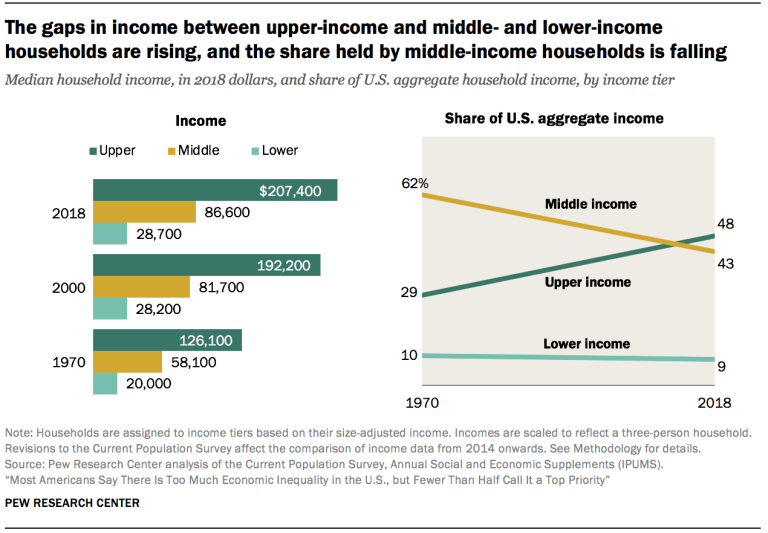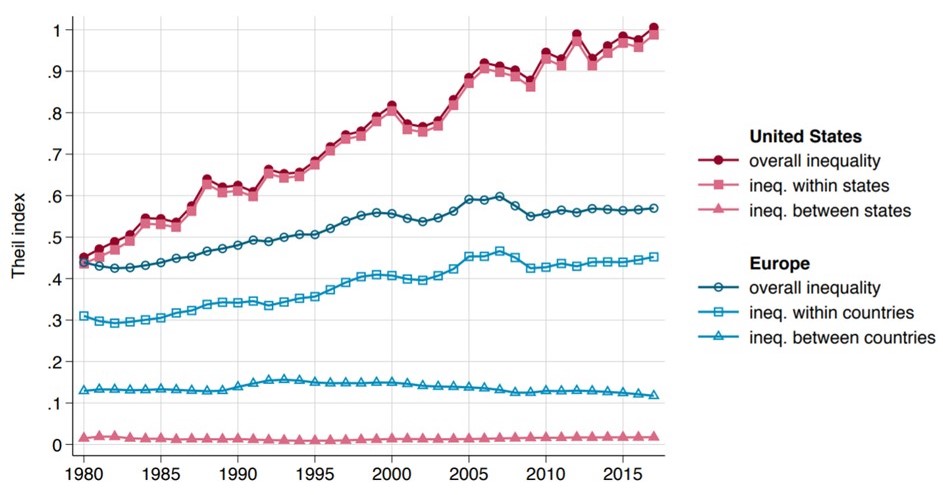Where as the US and UK to a degree, have insanely varying costs associated, meaning that % of GDP is concentrated on few people who either have money or are massively in debt afterwards.
There's good and bad in the UK - probably more bad but let me explain. Firstly, a poor graduate could end up with massive debt but it's repaid at very low rate AND
it isn't due to be repaid unless the graduate earns over pre-specified thresholds. Of course the downside and I've heard some tutors saying this - "don't worry, just stay below the salary threshold and you never have to repay" - but that puts into the student's mind that they shouldn't aim to progress.
Then - fees to become an engineer come from University education aren't always repayable (see above) whereas fees to become a plumber or carpenter are free if you are under 19 but they are up to £6000 a year if you start your course after you are 19 years old and they have to be paid before you start. There's no delaying those fees for trade skills.
However if you are from a poor background - you can
apply for a loan to study at local colleges to learn a trade or skill which becomes repayable on the same terms as the degree loan.
Basically in the UK, if you are going to become a plumber or carpenter - make your decision early in life (before you are 19) or you end up repaying the fees to learn these skills later in life. If you want to take a degree to be an artist or engineer or lawyer - you're going to need a Higher Education loan and you repay those fees whether you are 18 or 55 when you start and are the same whether you are from a poor background or a wealthy background.
In Denmark becoming a carpenter is equivalent to having a university degree. I suspect that ain't the fact in many other countries.
It's not seen the same way here, the trade skills like carpentry / plumbing / hairdressing are always seen as second choice. They are seen as pathways for the kids who didn't do well in the exams at 16.
It's stupid but roofers / plumbers / etc etc are not seen as good career pathways even though very often these people earn a better living and will always be able to find work compared to someone who takes an Arts or Humanities degree for example.
I am by no means discounting the networking and life experience gained by going away to college and living in a dorm,
but it depends on what your goal is, a University degree, or making friends.
For a lot of kids, a degree is very often a way of delaying life decisions. Even though trade skills are really important, a lot of kids end up on a conveyor belt to a degree without really thinking through whether they are going to earn a living from that degree or end up in later life going back and relearning a trade (and paying again for it)
and that´s the way how it shall be if you want a competetive educated society
Depends on the culture really. I see German culture in this regard as largely influenced by (I won't go into the influence of William Morris) the Deutscher Werkbund approach to crafts skills, quality and industry. Really simplistically, German industry went for quality and mass production and embraced those skills and the people who would need them.
Our Arts and Crafts movement largely died - especially when people with financial and political influence learned about William Morris's political views. Cutting the story short and being simple about it - we went the other way, our students tend to want the most reward for the least effort. One thing I did find when I taught was that the introduction of fees made a lot of students more serious about their education, they didn't always value free education because wider society didn't reflect that either.
When you go to highschool you can choose what kind of highschool you want.
What age is this that you choose?
Our high schools try and do everything - from sciences to practical and business lessons until you are 16. This is why some kids who are not academic come out of the education system without any qualifications and are told "
OK, you failed everything at school, why not go and become a bricklayer or plumber?"
With that background, you see why the trades are not highly valued by society here until it's too late.






